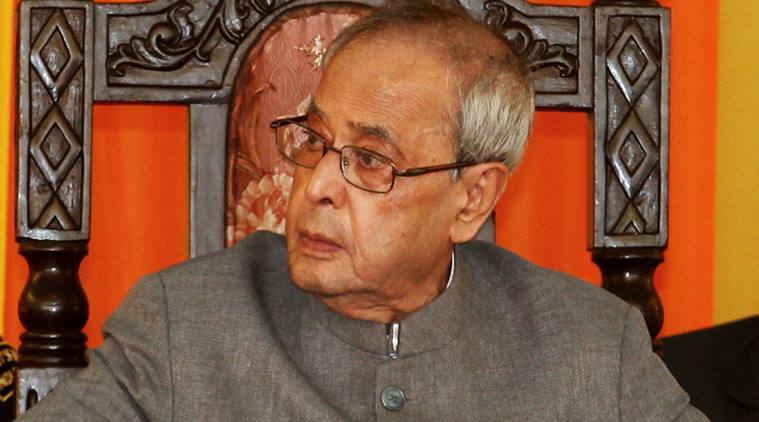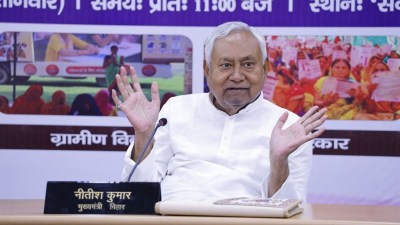Pranab signs NEET ordinance, states to hold tests
While the Union Cabinet had cleared the ordinance Friday, President Mukherjee took a couple of days to consider it, and signed it on Tuesday.
 President Pranab Mukherjee signed the NEET ordinance this morning.
President Pranab Mukherjee signed the NEET ordinance this morning.
After a brief spell of uncertainty over entrance examinations to medical and dental colleges, President Pranab Mukherjee on Tuesday signed the ordinance to provide relief to several states.
According to the ordinance, states will now have the option of holding their own entrance examinations — although only for this year — instead of making students take the all-India National Eligibility-cum-Entrance Test (NEET) for admission in undergraduate courses in medical and dental colleges this year.
While what is being dubbed as NEET-2 will be held as scheduled, on July 24, with states allowed to organise their own tests, all admissions will be done through the national test from next year. The ordinance also gives the states the elbow room to hold the tests in six vernacular languages notified earlier.
[related-post]
While the Union Cabinet had cleared the ordinance Friday, President Mukherjee took a couple of days to consider it, and signed it on Tuesday after getting the clarifications required from Health Minister J P Nadda. Attorney General Mukul Rohatgi was at the President’s Secretariat early in the morning along with top Health Ministry officials to respond to clarifications Mukherjee had sought.
Nadda said the President had two queries: why the urgency, and what happens to the existing admission system once the ordinance is promulgated.
He said this year the states now have the option of either conducting their own exams or be part of NEET to fill 85 per cent of the undergraduate (UG) medical and dental seats. The remaining 15 per cent seats will be filled through the NEET route by all-India counselling.
Read: NEET: Everything you need to know about the Supreme Court verdict
Stating that ordinance gave a “firm statutory status” to the concept of Uniform Entrance Examination, Nadda said that all private medical colleges and deemed universities will come under the ambit of NEET. For postgraduate courses, the exam will be held under NEET for 2017-18 session in December this year.
He also said that only state government seats in all medical colleges — government or private — will have exemption for this year. Management quota seats in these institutions, he said, will be filled by private colleges, associations of colleges or private universities or deemed universities through NEET UG-2016 examination in all states even this year.
Nadda said the government had to take the ordinance route since the Supreme Court is in vacation and both Houses of Parliament stand adjourned.
WATCH VIDEO | Education Is Not A Business, State Can Regulate Admissions: Supreme Court
Reacting to the criticism that the Centre is opposed to NEET, Nadda said the perception is “not true”. He said, “To bring in transparency in the admissions system we are in favour of NEET. In fact, it was the Central government that had moved a review petition. (But) views of the states could not be adequately represented in Supreme Court, so states had made certain demands of the Centre.”
Nadda said the Indian Medical Council (Amendment) Ordinance, 2016, and the Dentists (Amendment) Ordinance, 2016, are being promulgated to amend the Indian Medical Council Act, 1956, and Dentists Act, 1948, respectively.
Haryana, Himachal Pradesh, Manipur, Madhya Pradesh, Rajasthan, Odisha and Chandigarh have conducted exams under NEET this year.


- 01
- 02
- 03
- 04
- 05





























